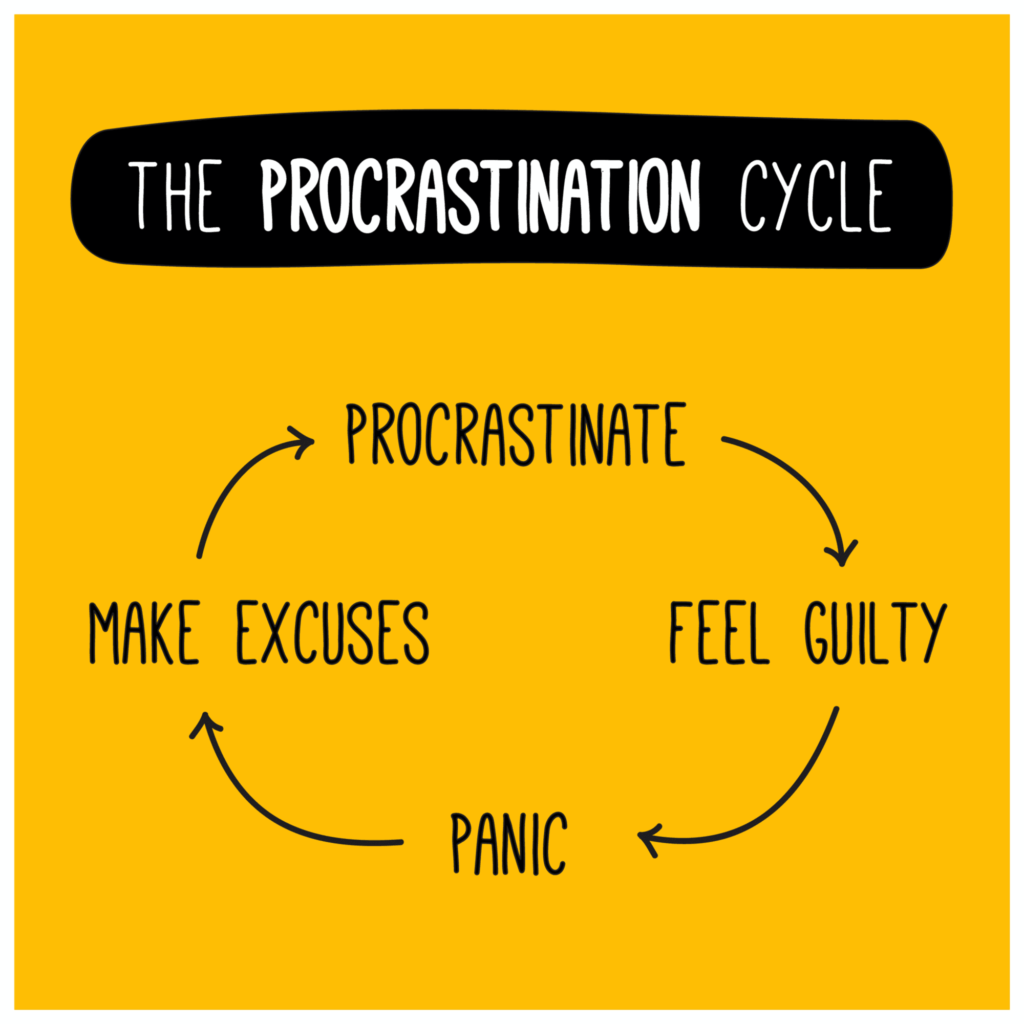Procrastination, the age-old habit of delaying tasks until the last possible moment, is a challenge that most of us have faced at some point in our lives. Whether it’s putting off work assignments, delaying household chores, or postponing personal goals, procrastination can be a persistent roadblock on the path to success and personal fulfillment.
If you find yourself stuck in “Tomorrow Land” far too often, it’s time to break free and regain control of your time and productivity.

What is “procrastination”?
Before diving into strategies to combat procrastination, it’s essential to understand why we procrastinate in the first place. Procrastination isn’t simply a matter of laziness; it’s a complex behavior influenced by various psychological and emotional factors:
- Lack of motivation: One of the primary reasons people procrastinate is a lack of motivation. When a task doesn’t inspire or excite us, we tend to delay it.
- Fear of failure: Procrastination can also be a defense mechanism against the fear of failing. If we don’t start a task, we can’t fail at it, or so the reasoning goes. The stress that comes from school doesn’t help, but(we have your back with these 5 really useful tips, trust me)
- Perfectionism: Striving for perfection can lead to procrastination because we fear that our work won’t meet our unrealistic standards.
- Task aversion: Unpleasant or tedious tasks are often avoided because they are simply no fun to do.
- Time mismanagement: Poor time management skills can lead to procrastination. When we don’t allocate enough time for a task or allow distractions to consume our time, procrastination becomes the default response.
It’s not a bad thing to feel any of these things. The most important part is to recognise these emotions and know how to resolve them.
Breaking the Procrastination Cycle:
Now that we understand why we procrastinate, let’s explore effective strategies to break the procrastination cycle and boost productivity:

- Set Clear Goals: Start by setting clear, achievable goals for yourself. When you have a specific target in mind, it becomes easier to stay motivated and focused.
- Create a To-Do List: Organize your tasks by creating a to-do list. Prioritize tasks and break them down into smaller, manageable steps. Crossing off completed tasks can be a motivating reward in itself.
- Use Time Management Techniques: Techniques like the Pomodoro Technique (working for 25 minutes and then taking a 5-minute break) can help you stay on track and prevent burnout.
- Tackle the Most Dreaded Task First: Instead of avoiding unpleasant tasks, tackle them head-on. Completing the most challenging task first can provide a sense of accomplishment and make the rest of your to-do list seem more manageable.
- Eliminate Distractions: Identify and eliminate common distractions in your environment. Turn off notifications on your phone, block distracting websites, and create a clutter-free workspace.
- Reward Yourself: Implement a reward system to motivate yourself. After completing a task, treat yourself to something you enjoy, whether it’s a favorite snack, a short break, or a leisure activity.
- Seek Accountability: Share your goals with a friend or family member who can help hold you accountable. The thought of reporting your progress to someone else can be a powerful motivator.
- Practice Self-Compassion: Don’t be too hard on yourself when you slip up. Procrastination is a common struggle, and it’s okay to have off days. Learn from your setbacks and use them as opportunities for growth.

Procrastination can be a stubborn adversary, but with the right strategies and mindset, you can break free from its grip and reclaim control over your time and productivity.If you follow these steps, your future self will thank you.
By understanding the underlying causes of procrastination and implementing effective techniques, you can stop living in “Tomorrow Land” and start making the most of today.













